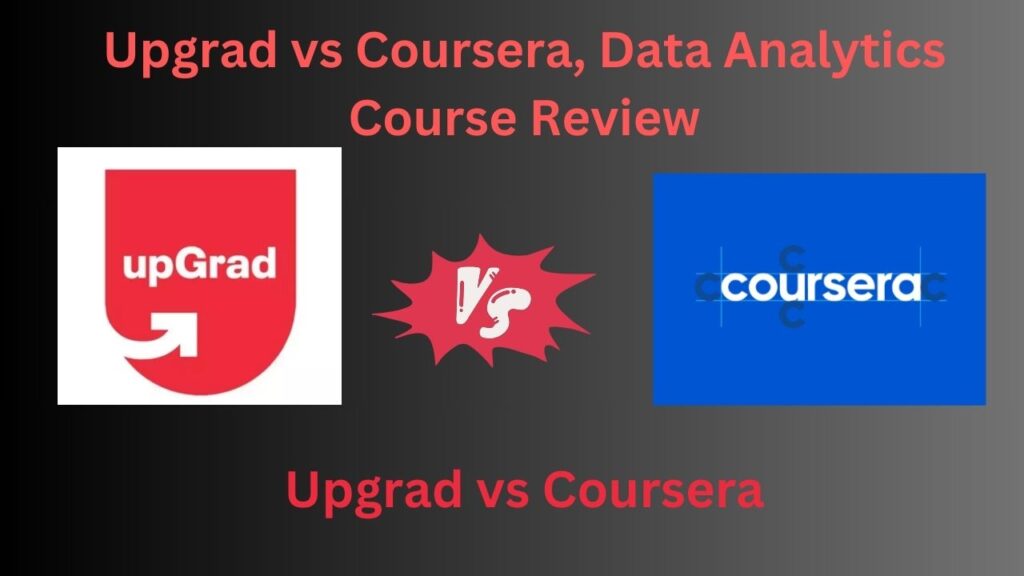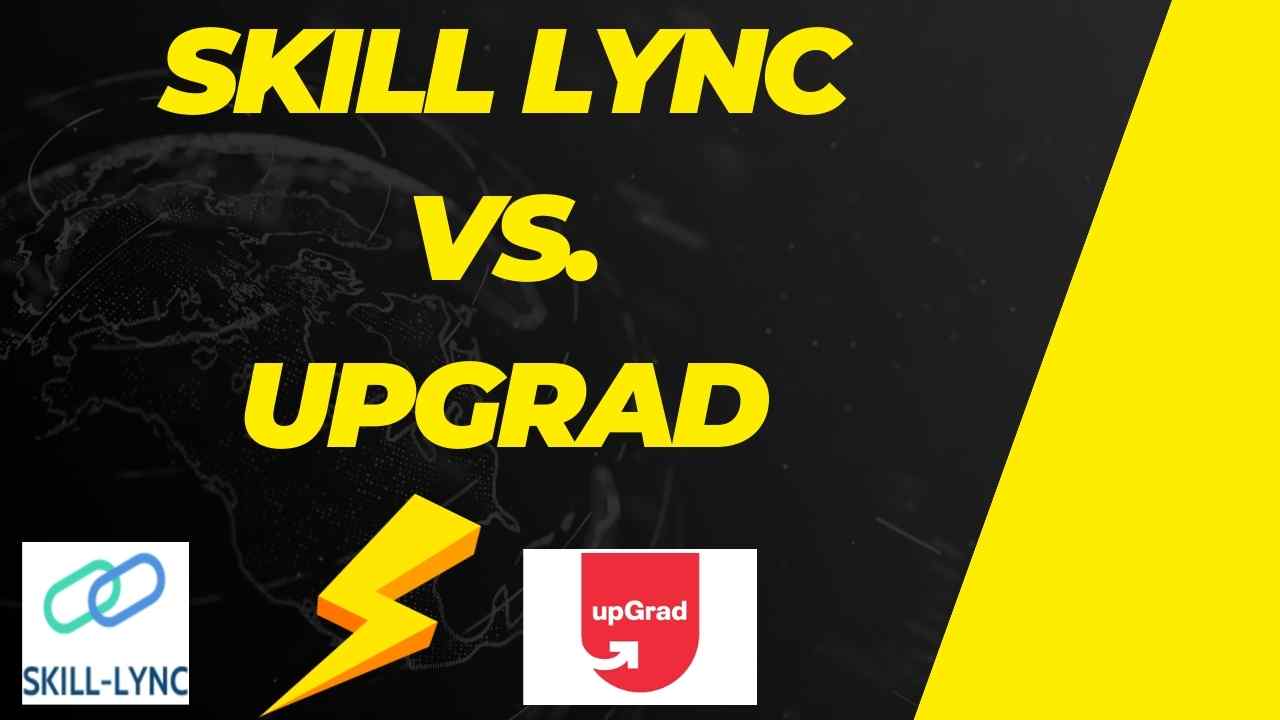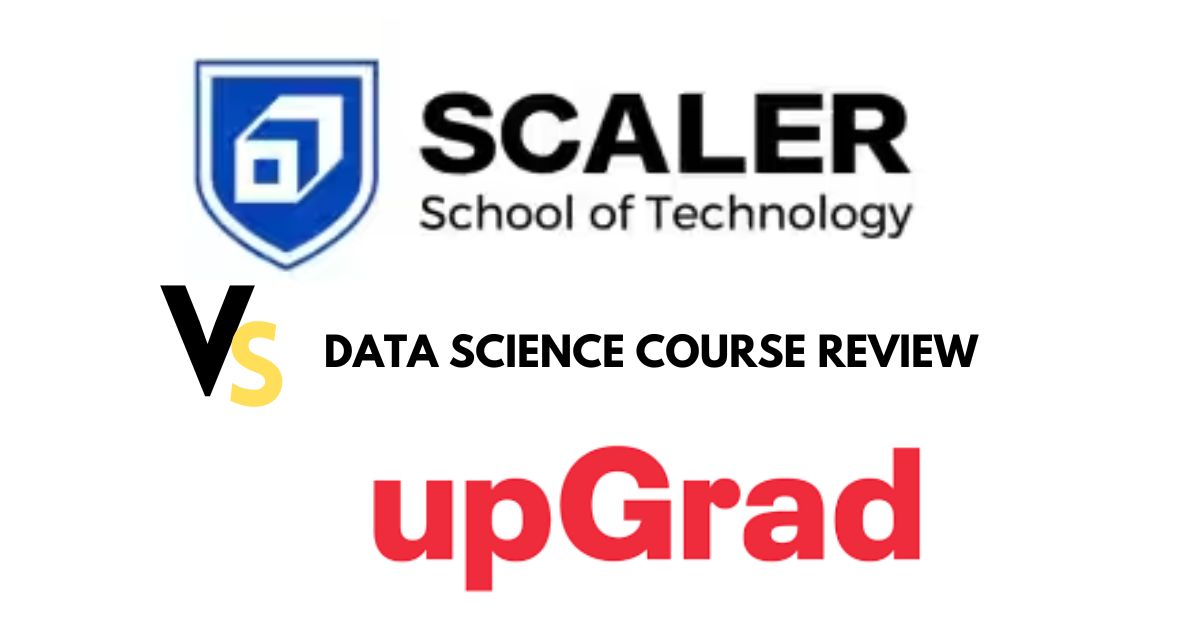upgrad vs Coursera, Data Analytics Course Review… What to Choose?

Deciding where to learn Data Analytics, on UpGrad or Coursera, can be quite a task. Both of the platforms are widely used in the sphere of e-learning, and the peculiarities are regarding the courses’ structures, fees, main features, and students’ opinions.
Also, UpGrad covers real assignments applicable to the learners’ workplaces besides offering an extensive career support that includes placements. On the other hand, Coursera provides relevant and detailed courses in Data Analytics that have lifetime access to the material and contain a lot of practical activity-based assignments.
To assist you in choosing the best platform to enroll in a Data Analytics course, you will read facts on the courses’ offer, fees, significant features, as well as students’ opinions on UpGrad and Coursera.
Upgrad Data Analytics Course: Courses, Key Highlights, Syllabus, Placements, Fees, Reviews
Upgrad Data Analytics Course
When considering the Data Analytics Course offered by UpGrad it’s important to note that the course duration is longer and the fees are relatively higher compared to platforms. However UpGrad stands out because of its features, such, as Post Graduate Programs and partnerships with known universities globally. These partnerships guarantee a strong curriculum focused on improving job readiness and offering relevance.
The Data Analytics Course at UpGrad is one part of a range of programs that also cover areas, like Data Science, Artificial Intelligence, Machine Learning and more. Whether you aim to advance your career pursue education or undergo training UpGrad provides programs customized to cater to different educational needs. Students benefit from industry experts who actively participate in teaching ensuring an engaging learning journey.
Upgrad Data Analytics Course Key Highlights
| Attribute | Details |
|---|---|
| Industry-Relevant Curriculum | Designed in collaboration with top universities and industry leaders, ensuring up-to-date and applicable knowledge. |
| Hands-On Learning | Includes real-world case studies and practical assignments to bridge theoretical knowledge with practical application. |
| Flexible Learning | Offers options for online classes and self-paced learning, suitable for working professionals with varying schedules. |
| Mentorship and Support | Access to industry experts for personalized guidance and feedback, enhancing learning outcomes. |
| Placement Assistance | Provides support and resources to help learners secure employment with top companies, including job portals and placement drives. |
| Collaborations with Top Universities | Partnerships with renowned institutions like Liverpool John Moores University and IIIT Bangalore to provide globally recognized credentials. |
| Real-World Projects | Engages learners in industry-relevant projects and case studies to develop practical skills and build a strong portfolio. |
Upgrad Data Analytics Course Syllabus
| Program | Duration | Key Topics | Projects |
|---|---|---|---|
| MS in Data Science (Liverpool John Moores University) | 18 Months | 1. Data Collection 2. Data Cleansing 3. Data Transformation 4. Data Modeling 5. Machine Learning 6. Big Data Technologies | 1. Real-world case studies 2. Practical assignments |
| Post Graduate Programme in Data Science & AI (IIIT Bangalore) | 12 Months | 1. Python Programming 2. Data Analysis Techniques 3. Machine Learning 4. Artificial Intelligence | 1. Industry-relevant projects 2. Exclusive job portal access |
| Data Science Bootcamp with AI (UpGrad) | 6 Months | 1. Data Science Fundamentals 2. AI 3. Machine Learning | 1. Practical assignments 2. Projects with placement assistance |
Upgrad Data Analytics Course Placements
- Average Salary Hike: 57%
- Highest Salary Offered: ₹1.23 Cr
- Career Transitions: 6000+ successful transitions
- Hiring Partners: 300+ including Tech Mahindra, Amazon, Tata, Wipro, Microsoft, TCS, Infosys, Flipkart, IBM, HDFC Bank
Upgrad Data Analytics Course Fees
The fees for UpGrad’s data analytics courses depend on the specific program and university. Generally, the cost is justified by the detailed curriculum, mentorship, and placement support. For exact fee details, check the UpGrad website or contact their admissions team.



Upgrad Data Analytics Course Reviews
Abhinay Bandaru (Product Analyst, Head Infotech): UpGrad’s mentors were essential in clarifying doubts and providing valuable guidance.
Bhagvathi (Data Analyst, Kantar): The course was well-structured and helped her grasp new concepts easily. UpGrad’s placement drive was instrumental in securing a job in an MNC.
Moulik Srivastava (Technology Project Manager, Victory Farms): The mentorship from industry veterans and hands-on projects made the program exceptionally beneficial.
Coursera Data Analytics Course: Courses, Key Highlights, Syllabus, Placements, Fees, Reviews
Coursera Data Analytics Course
One has to focus on several important aspects regarding the Google Data Analytics Professional Certificate; these aspects are the aim of the certificate, the possibility to deepen the knowledge of data analytics, the openness of the learning process, and the cost. This program can be easily distinguished from all other educational platforms for the following reasons: collaboration with Google and offering students a curriculum developed by professionals in the given field with the aim to prepare students for employment. The Google Data Analytics Professional Certificate offers users numerous advantages and functionalities that have made this product suitable for individuals who want to upgrade their careers in data analytics. It is one of the many certificates that are provided under Google’s Career Certificates which includes computer science, project management and UX design among others. Whether the aim is to switch to another profession, obtain new knowledge, or gain more experience within the current occupation, this certificate covers different learning processes. The education that the students is able to receive include one that is supplemented by employees of Google who are actively participating in the teaching learning process. The real life aspects of the projects alongside the projects that are undertaken in the course of the program helps to relate the students to the job market and provide them with direction on how to navigate through the markets.
Coursera Data Analytics Course Key Highlights
| Key Highlight | Details |
|---|---|
| Course Duration | Approximately 6 months (10 hours per week) |
| Learning Format | Online, self-paced |
| Curriculum Developed By | |
| Core Topics | Data cleaning, analysis, visualization, spreadsheets, SQL, R programming, Tableau |
| Hands-On Projects | Includes real-world case studies and practical labs |
| Career Support | Resume reviews, interview preparation, career resources, access to Google’s Employer Consortium |
| Certification | Professional certificate from Google |
| Skills Acquired | Data cleaning, data analysis, data visualization, SQL, R programming, portfolio development |
| Average Rating | 4.8 out of 5 |
| Monthly Cost | Approximately $92 per month |
| Job Roles Targeted | Data Analyst, Junior Data Analyst, Associate Data Analyst |
Coursera Data Analytics Course Syllabus
| Course | Duration | Key Topics |
|---|---|---|
| Course 1: Foundations: Data, Data, Everywhere | 18 hours | Introduction to data analytics, data lifecycle, key terminology, role of a data analyst, overview of tools |
| Course 2: Ask Questions to Make Data-Driven Decisions | 21 hours | Formulating data questions, effective exploration, defining data requirements, KPIs, data ethics |
| Course 3: Prepare Data for Exploration | 25 hours | Data collection methods, formats and types, cleaning and structuring data, integration, transformation, tools |
| Course 4: Process Data from Dirty to Clean | 26 hours | Data cleaning techniques, handling missing data, validation, formatting, normalization, quality assessment |
| Course 5: Analyze Data to Answer Questions | 32 hours | Exploratory data analysis (EDA), statistical methods, SQL querying, advanced Excel functions, interpreting findings |
| Course 6: Share Data Through the Art of Visualization | 25 hours | Principles of visualization, creating charts/graphs, using Tableau, designing dashboards, presenting insights |
| Course 7: Data Analysis with R Programming | 34 hours | Introduction to R, data manipulation and analysis, creating visualizations, statistical analysis, R Markdown |
| Course 8: Google Data Analytics Capstone: Complete a Case Study | 13 hours | Real-world project application, developing case study, portfolio-ready project, presenting findings, professional feedback |
Coursera Data Analytics Course Placements
- Average salary increase: Over $92,000 per year
- Job roles: Data Analyst, Junior Data Analyst, Associate Data Analyst 75% of graduates to get new jobs or promotions
- Connection to companies like T-Mobile, Wells Fargo, and AdobeCareer to help with resumes, interviews, and jobs
- Providing help with job applications and interviews
Coursera Data Analytics Course Fees



Coursera Data Analytics Course Reviews
Abhinay Bandaru: The mentors were really helpful and answered all my questions, which made learning easier.
Bhagvathi: The course was well-organized, and I got a job at a big company thanks to the placement drive.
Moulik Srivastava: Learning from industry experts and working on real projects made the course very valuable.
UpGrad vs. Coursera: Data Analytics Course Differences
| Feature | UpGrad | Coursera |
|---|---|---|
| Course Format | Online, with live sessions and recorded content | Online, self-paced |
| Course Length | 3 to 12 months, depending on the program | Generally 6 to 12 months, depending on the course |
| Learning Approach | Theoretical knowledge combined with practical, project-based learning | Mix of video lectures, quizzes, and peer-graded assignments |
| Collaborating Institutions | Liverpool John Moores University, IIIT Bangalore | University of Michigan, Duke University, Google |
| Core Topics | Data Collection, EDA, Statistical Analysis, Data Visualization, SQL, Predictive Modeling, Machine Learning | Data Cleaning, Analysis, Visualization, SQL, R Programming, Tableau |
| Capstone Projects | Includes industry-relevant projects and case studies | Typically includes real-world projects related to the course |
| Mentorship | Personalized guidance from industry experts | Varies by course; some offer community support and peer reviews |
| Career Services | Dedicated placement assistance, job portals, resume reviews, and interview preparation | Resume reviews, interview preparation, and career coaching in specific courses |
| Placement Statistics | High salary hikes; connections with major companies like Amazon, Microsoft, and IBM | Varies; some courses offer access to job boards and company recruitment |
| Fees | Generally higher; varies by program and partnering university | Typically lower, around $39 to $92 per month; total cost depends on course duration |
| Certification | Professional certificates, often in collaboration with universities | Professional certificates from top universities or companies like Google |
| Pros | Strong industry connections, extensive career support, and mentorship | Flexible learning, affordable, and access to courses from leading institutions |
| Cons | Higher cost, longer duration | Variable mentorship quality, less intensive career support |
Conclusion
Choosing between UpGrad and Coursera for data analytics courses is all about what you need and want:
- UpGrad is a good fit for students looking for an organized course, with many live lessons, direct access to expert help and strong job assistance. It’s a preferred option if you can spare more money and time to secure better career support and networks.
- Coursera on the other hand suits those who prefer learning at their own pace but are budget conscious. They offer self-paced courses in partnership with leading universities and companies. Even though it may not provide as much personal support on career information, it has affordable certification options.
Thus, if you would like a well-supported program that can be paid for, settle for UpGrad. And should flexibility plus reduced rates be your priorities then choose Coursera.
For further clarification and fee concession, you can contact
- referral code– Click Here
- Contact Info– 7735361649
ALSO READ: Mesa School of Business vs Masters Union, Which One To Choose?
Frequently Asked Questions
1. What’s the main difference between UpGrad and Coursera Data Analytics courses?
Answer: UpGrad offers a structured learning experience with live classes, hands-on projects, and strong career support. In contrast, Coursera provides flexible, self-paced courses with video lectures and assignments from top universities.
2. How long does it take to complete the courses?
Answer: UpGrad courses typically take between 3 to 12 months to complete, while Coursera courses usually last from 6 to 12 months.
3. Do I need any prior knowledge before starting?
Answer: UpGrad might require some basic knowledge of data analytics, depending on the course. Coursera courses generally do not have strict prerequisites, though having a basic understanding of data analytics can be helpful.
4. What type of certification will I receive?
Answer: UpGrad provides professional certificates, often in collaboration with universities. Coursera offers certificates from top universities or companies like Google.
5. How much do the courses cost?
Answer: UpGrad courses are generally more expensive. Coursera is typically more affordable, with monthly fees ranging from $39 to $92.
6. What kind of career support is available?
Answer: UpGrad offers extensive career support, including job placement assistance, resume reviews, and interview preparation. Coursera provides resume reviews, interview help, and career coaching, though the level of support can vary by course.
7. Can I learn at my own pace?
Answer: UpGrad includes a mix of live sessions and recorded content, requiring some adherence to a schedule. Coursera allows for complete self-paced learning, letting you progress at your own speed.
8. Are there any real-world projects in the courses?
Answer: UpGrad includes industry-relevant projects and case studies as part of its curriculum. Coursera also includes real-world projects, particularly in specialized courses or capstone projects.
9. How do the courses help with job placement?
Answer: UpGrad provides extensive job placement support and has strong industry connections. Coursera offers access to job boards and career resources, but the level of placement support can vary.


